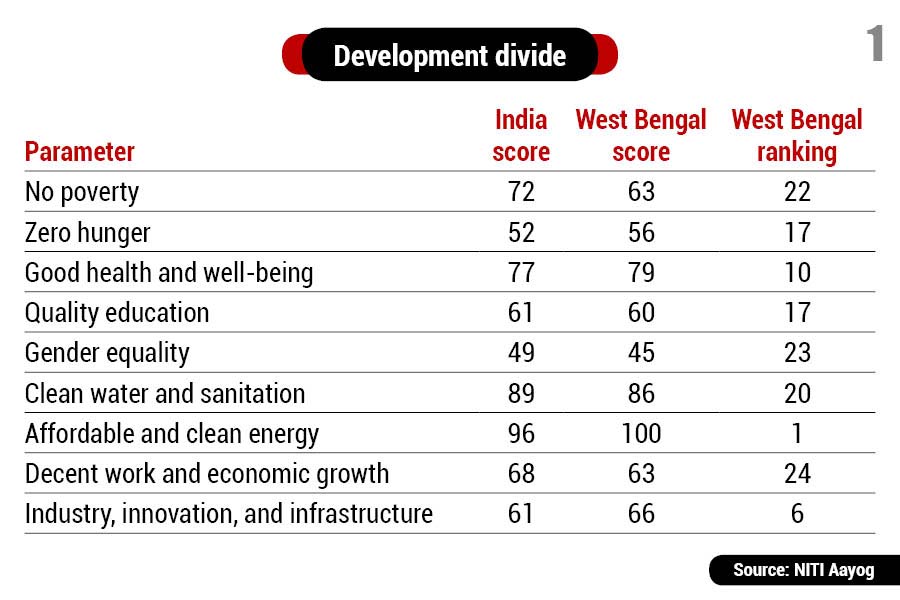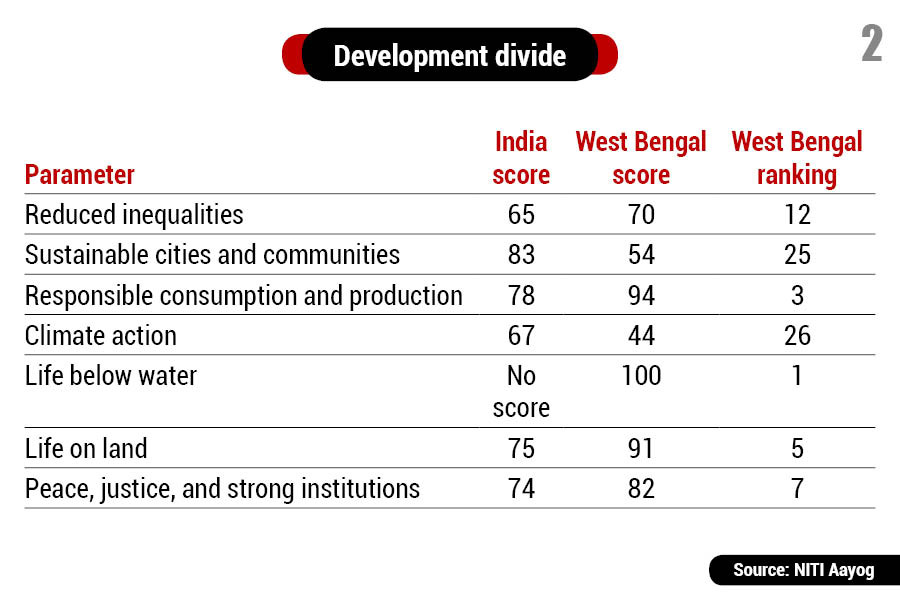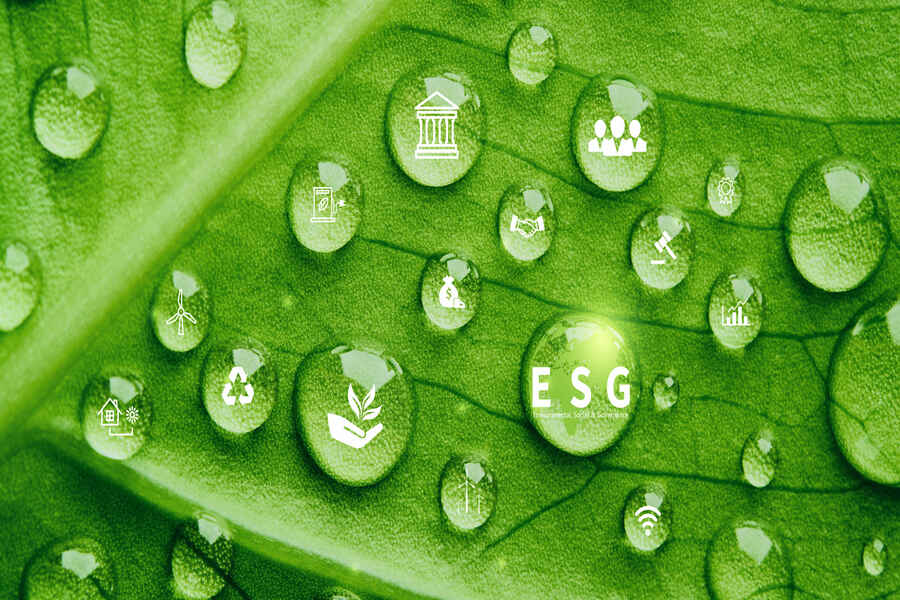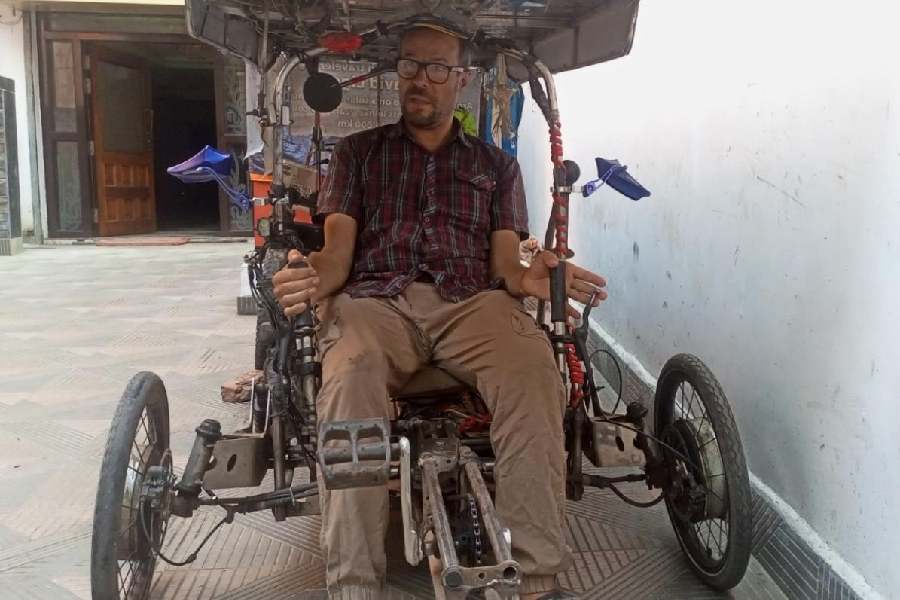A recent report published by a Union government agency, in collaboration with the United Nations, has found West Bengal to be one of the most improved states in the country over the past two years in terms of achieving sustainable development.
The report, SDG India Index 2023-24, is being jointly prepared by the country’s frontline planning organisation Niti Aayog along with United Nations Development Programme (UNDP) and United Nations India to assess the performance of various states in achieving sustainable development goals (SDG).
The report shows that West Bengal’s aggregate SDG score has improved 8 points in the past two years, improving from 62 in 2021-22 to 70 in the latest 2023-24 count, and the improvement value has been highest in the country with few other states. “The SDG India Index 2023-24 demonstrates the increase in composite scores across all states … Leading the way in terms of score improvement are Assam, Manipur, Punjab, West Bengal and Jammu and Kashmir, each achieving a positive change of 8 points since the 2020-21 edition,” states a Union government communique accessed by the correspondent.
Overall, India, as a nation, has improved 5 points in SDG index scores in the past two years; improving to 71 in 2023-24 from 66 in 2021-22. Of the parameters considered, the national performance was found to be the best in ‘affordable clean energy’ with a score of 96, while ‘gender equality’, with a score of 49, fared the poorest.
A set of 17 sustainable development goals have been adopted by all UN member countries in 2015, including India, with a target to achieve cent per cent scores in those by 2030. In turn, the Indian states are mandated to reach the same target scores.
Bengal better than country average in 8 parameters
The assessment shows that Bengal scores were better than the national average in 8 of the 15 parameters for which comparable scores have been available. Bengal was better than the national average in parameters like ‘zero hunger’, ‘good health & well-being’, ‘affordable & clean energy’, ‘industry, innovation & infrastructure’, ‘reduced inequality’, ‘responsible consumption & production’, ‘life on land’ and ‘peace, justice & strong institution’.
On the contrary, it fared poorer than the national average score in parameters like ‘no poverty’, ‘quality education’, ‘clean water & sanitation’, ‘decent work & economic growth’, ‘sustainable cities & communities’ and ‘climate action’.
Overall, West Bengal stands tenth in the country, improving one place over 2021-22 position, while Kerala and Uttarakhand with SDG scores of 79 each, occupy the top ranking in the country. Tamil Nadu gets the second-best rank in the country, while Goa and Himachal Pradesh are joint third-place holders.
While West Bengal has improved in majority of the 16 parameters over the 2021-22 assessment, it fared the poorest in parameters like climate action and sustainable cities with 26th and 25th ranks, respectively, in the country out of 36 states and Union territories.


Targets unlikely to stick timeline
In June 1992, at the Earth Summit in Rio de Janeiro, Brazil, more than 178 countries adopted Agenda 21, a comprehensive plan of action to build a global partnership for sustainable development targeting the improvement in quality of human lives and protection of the environment.
However, after long negotiations, in September 2015, finally the 2030 Agenda for Sustainable Development, with 17 SDGs at its core, was adopted at the UN Sustainable Development Summit. “Due to the wars raging in various parts of the world alongside the earlier impact of Covid pandemic, it is unlikely that most countries, including India, will be able to catch the 2030 deadline. Indian states follow the same pattern,” an economist told this correspondent, hailing the progress of states like West Bengal.


